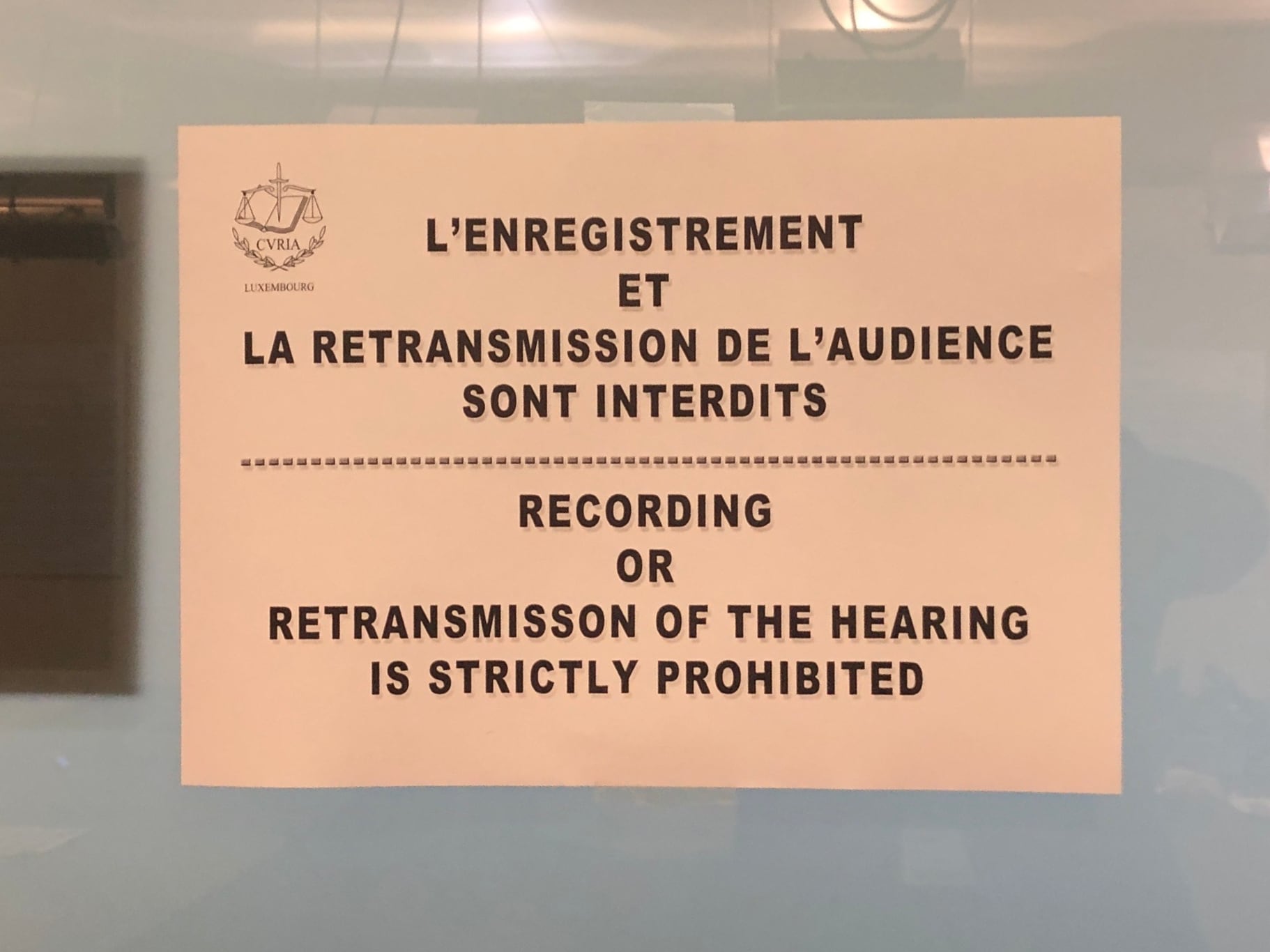Live from Luxembourg
In November 2020 - as the second wave of covid infections crested over Europe - I drove 418 kilometres through the night to report on the hearing in Case C-401/19 at the Court of Justice of the European Union in Luxembourg. At the hearing I was one of two accredited members of the press and the only one writing for a free access publication (the other journalist wrote for a paywalled trade publication). Apart from the two of us, the hearing was attended by a small group of lawyers who were following the hearing to privately report back to their industry clients (both entertainment industry and online platforms) and otherwise the spacious halls of Europe’s highest court were largely deserted.
Before driving down to Luxembourg i had considered to try to live stream the hearing. I had set up a twitch channel ("Radio Luxembourg") and brought some audio equipment that would have allowed me to capture and stream the audio of the hearing from the court’s audio system. Once arrived at the court and set up in the press centre, I quickly abandoned these plans after being reminded that the Court really does not want to have its workings communicated to the public. Usually I am not someone who quickly complies with senseless rules — but even I did not want to mess with Europe’s highest legal authority.

Sign on the wall of the press room of the CJEU
So I settled behind my laptop and engaged in a furious sprint of note taking (not necessarily an easy task given the multilingual nature of proceedings at the CJEU) and published the only(!) publicly available report of the hearing.
All of this is to say that I am extremely happy to hear that yesterday the Court has finally decided to embrace modern technology and will start streaming Grand Chamber hearings and judgements as of next week (pdf).
Coincidentally this means that the first judgement that will be live streamed by the court will be the judgement in Case C-401/19, the case that made me drive through the night to cover back in November 2020. Stock up on the 🍿 and tune in for episode one of season one of CJEU-TV on Tuesday 26 April at 0930h CET (and then join us for our COMMUNIA Salon to discuss the implications of the judgement on Thursday 28 April at 1530h CET).
Apart from this - happy? - coincidence the decision of the Court to finally stream its public proceedings is extremely welcome in general. Justice and democracy do not flourish in darkness and scenarios in which public access to the deliberations on fundamental rights is dependent on some random activist being able to drive across borders are not conducive to trust in our democratic institutions.

Do not travel abroad unless necessary — signboard alongside the A2 highway at the Dutch - Belgian border
Back in November 2020 after the hearing, i expressed my frustration about the senseless aversion to stream the hearing to the court’s extremely friendly and helpful press officer, who turned out to be just as frustrated with this decision as i was. He also hinted that there were discussion ongoing among the judges and that he and his colleagues were pushing for more openness. As it is well known, the wheels of justice turn slowly but now — with a number of additional waves of covid behind us and the acute urgency gone for now1 — the court has finally realised it does indeed make sense “to facilitate the public’s access to its judicial activity” by streaming its proceedings.
Now let’s hope that the CJEU’s streaming infrastructure will be up to the task to provide access to Tuesday’s judgement, which is highly anticipated by a lot of people.
-
Even if you can now follow proceedings online, if you ever have the possibility you should still go and attend a hearing of the court in person at least once. ↩︎
